7 fun bunny facts for Adopt a Rescued Rabbit Month
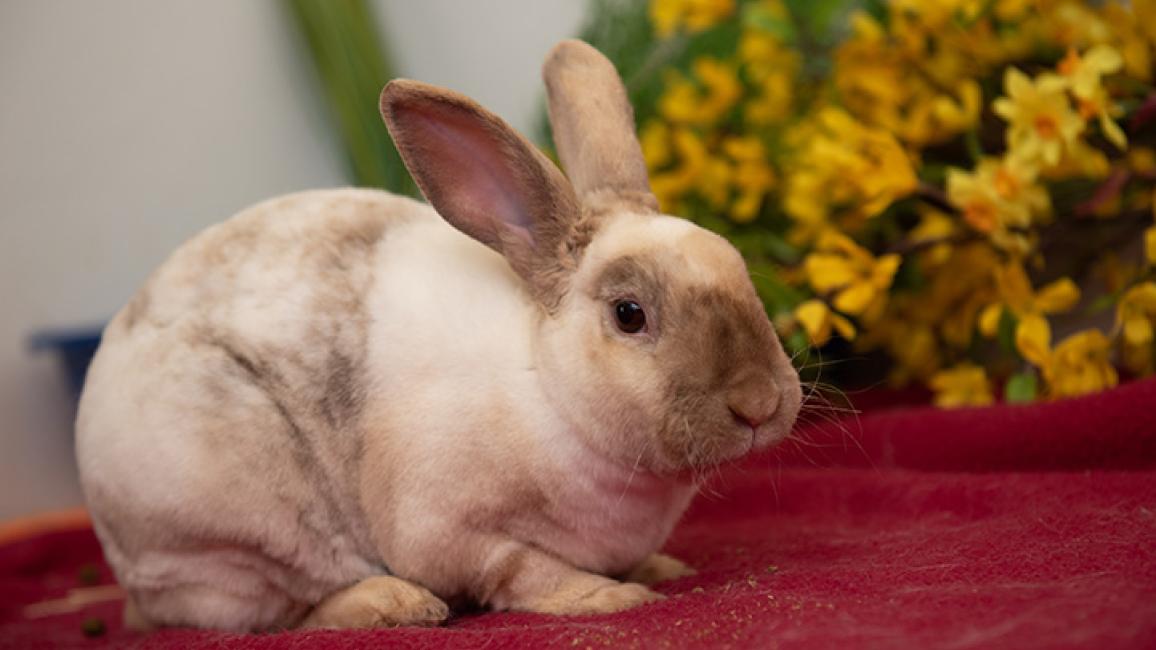
There’s no question about it: Bunnies are absolutely adorable. With their long, soft ears, twitchy noses and bright eyes, there’s a whole lot to love. They make amazing companions and fabulous fluffy friends. And there are plenty of rabbits looking for homes, both at Best Friends and at many rescue groups and shelters all around the country.
February is Adopt a Rescued Rabbit Month. So, if you’ve thought about adding a cottontail friend to your family, it’s the perfect time to learn a little bit more about them and see who may be available near you.
Here are some bunny facts to get you going.
1. Growing up
Bunnies grow up very quickly and can live for more than a decade. Depending on breed, they can reach full size and adulthood in just a few months. Of course, that doesn’t make them any less cute. (Could they ever be?) But it does mean it’s important to get them spayed or neutered quickly. It’s better for their health and makes them less susceptible to certain types of cancer. And, of course, if males and females aren’t kept separate, you could end up with a lot of tiny surprises.
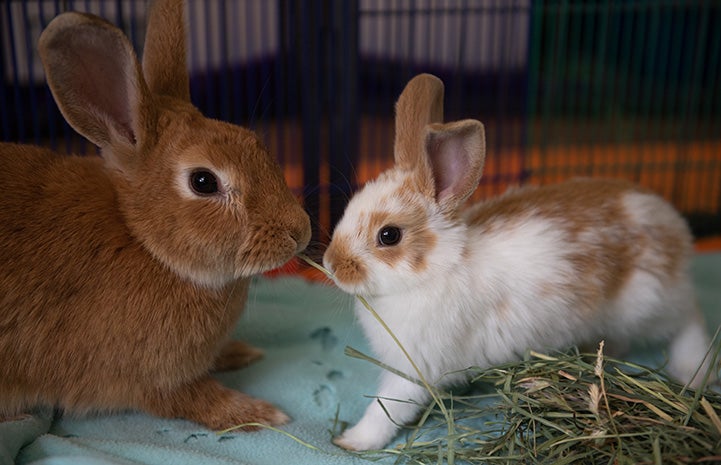
2. Purring
Do you enjoy the gentle, relaxing sound of a cat purring? Well, good news: Pet bunnies also purr, and it’s just as sweet. They make the sound with their teeth, often when they’re very happy. Just like cats, though, while it’s a soothing action, bunnies might also purr if they are in pain. So be sure to know what’s normal for your fluffy friend, so you can all be happy and relaxed.
3. Bonded bunnies
For most bunnies (though certainly not all), having a friend is very important. They bond very strongly and they’re much happier having another long-eared pal to keep them company. Introductions are important, of course, to make sure they get along. But once they do, bonded bunnies will play, groom and cuddle ― never straying too far from one another. (Plus, two bunnies are twice as cute.)
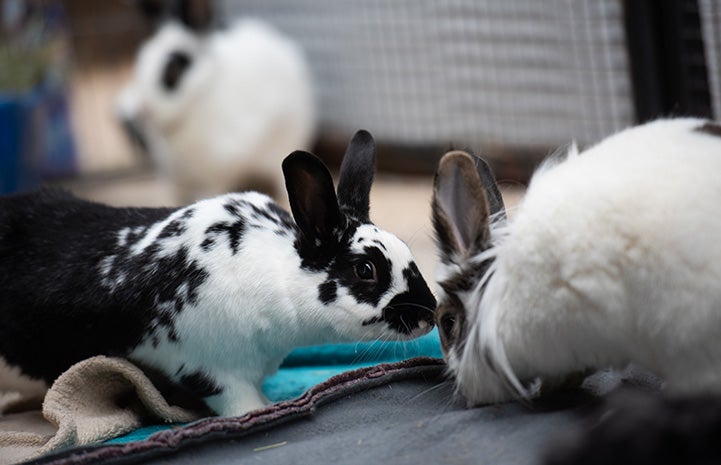
[Watch an hour of hoppy cuteness on the Best Friends bunny cam]
4. Litter box training
You might be worried about how much bunnies do their business. (It’s a lot). But never fear, for bunnies can be litter box-trained. And it’s not too different from housetraining a new puppy.
5. Exploring the senses
The senses are very important to bunnies. Since they are prey animals, being able to sense a predator and react quickly keeps them alive. Their eyes are located on the sides of their heads so they can see almost everything around them, yet they have a blind spot right in front of their tiny noses. Those noses are super sensitive, too. Their ears are great for hearing and can rotate almost in a full circle to help them catch the smallest of sounds. Plus, their ears are perfect for keeping them cool because they’ve got lots of blood vessels which expand when it’s hot to help cool them from the inside.
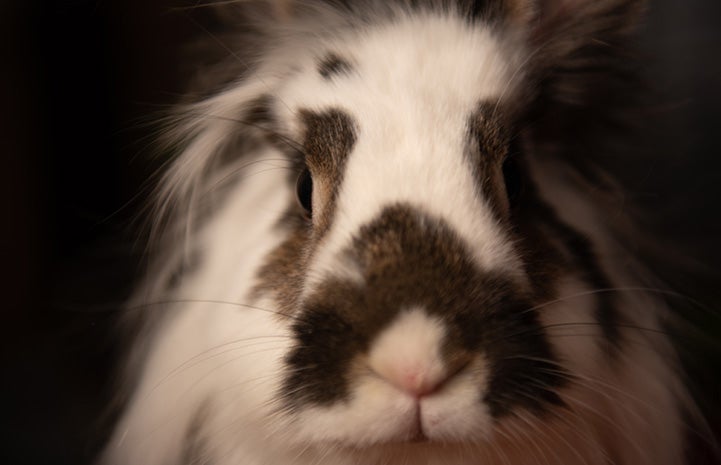
6. A green diet
Despite what cartoons taught us growing up, carrots are not the main staple of a rabbit’s diet. In fact, carrots should really be saved for special treats, along with fruits and other sweets. Leafy greens (romaine lettuce, kale, cilantro) and specially formulated pellets are the best options for a bunny’s healthy diet.
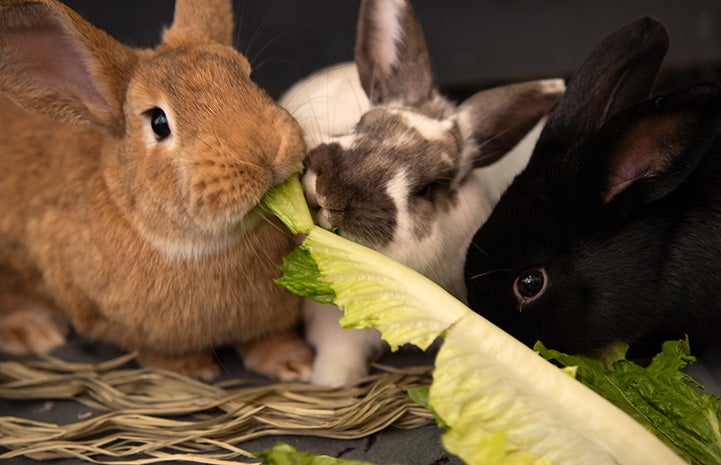
7. Body language
As with other pets, knowing body language is important for understanding how your bunny feels. When he’s nervous, he might try to make himself as small as possible and be on his paws and on alert. A relaxed rabbit will stretch out on his side or even roll over onto his back. And when he’s very happy, he’ll perform a “binkie,” (a move that’s just as cute as it sounds), where he’ll hop up in the air and spin around.
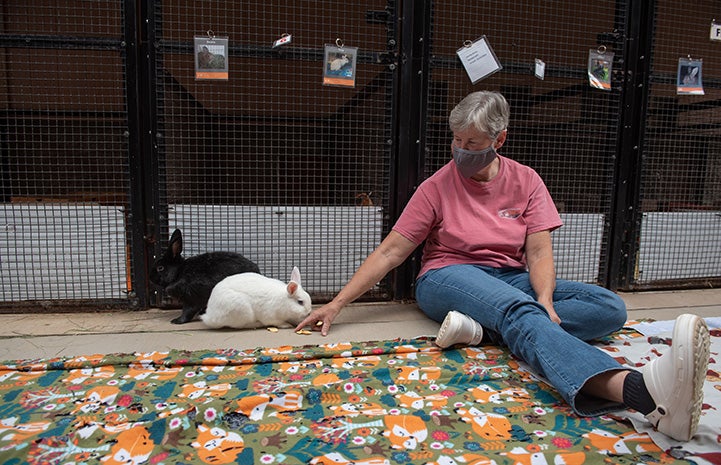
Ready to find a bunny friend?
Check out some adoptable rabbits at Best Friends and other locations near you.
Read more:
What’s so wonderful about helping bunnies?
How to get a pet bunny — or three
Partially paralyzed rabbit gets hopping again
Photos by Molly Wald